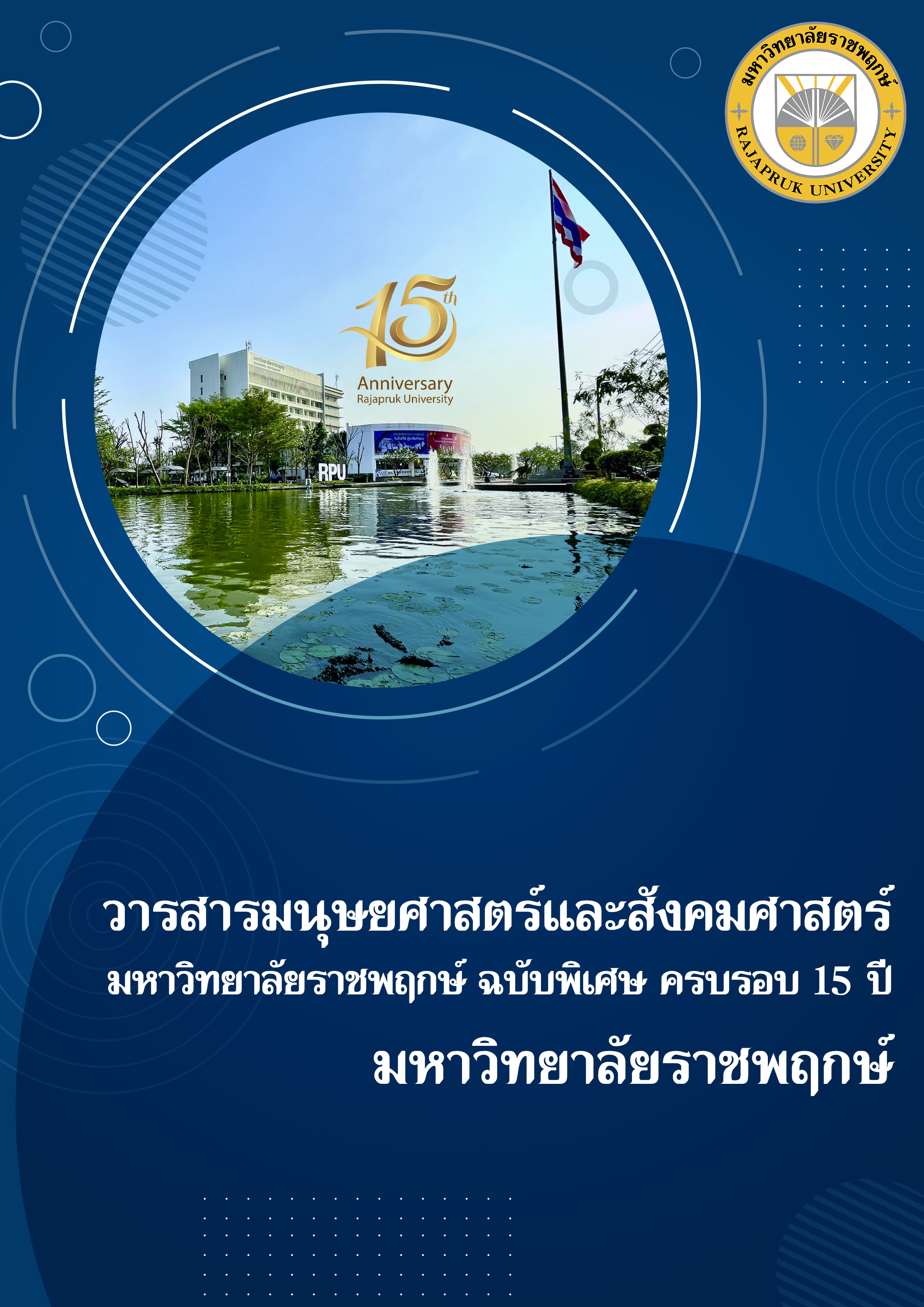The Desirable Characteristics of Educational Institute Administrators in the Digital Age, of Vocational Institute of Central Region 1, Office of the Vocational Education Commission
Main Article Content
Abstract
The research aimed to study and compare the level of desirable characteristics’ level of educational institute administrators in the digital age, of vocational institutes of central region1, office of vocational education commission, classified by gender, education level, working experience, class and position. The populations were 826 teachers and the samples consisted of 269 teachers who were teaching in the institute of vocational education central region 1. The sample size was determined according to the Taro Yamane table and stratified random sampling. The research Instrument used was the rating scale questionnaire in which the individual IOC rate was 0.67-1.00, the reliability was 0.98, and informal interview. The statistics used for the data analyzing were frequency, percentage, mean, standard deviation (SD), t-test, one-way ANOVA and LSD.
The results were as follows: 1) the desirable characteristics’ level of educational institute administrators in the digital age, of vocational institutes of central region 1, office of the vocational education commission was at a high level in both an overall and individual topic. In descending order, the average in each topic were morality and ethics, character, management skills, academic skills, and leadership skills respectively 2) The comparison results of teachers’ opinion towards the desirable characteristics of educational institute administrators in the digital age classified by gender was in the similar way. In contrary, the differences of educational level, experiences, and positions were at a statistical significance level of .05
Article Details
References
ชลธิชา โฆษิต. (2562). คุณลักษณะที่พึงประสงค์ของผู้บริหารตามความต้องการของบุคลากร วิทยาลัยอาชีวศึกษา สังกัดสำนักงานคณะกรรมการการอาชีวศึกษา จังหวัดบึงกาฬ. ค้นเมื่อวันที่ 2 กุมภาพันธ์ 2563, จาก https://bit.ly/3jJIqxU.
ณัฐนันท์ แถวนาชุม. (2561). ความสัมพันธ์ของคุณลักษณะของผู้บริหารกับการบริหารงานความร่วมมือของสถานศึกษา สังกัดสำนักงานคณะกรรมการการอาชีวศึกษาภาคตะวันออก. ค้นเมื่อวันที่ 21 มกราคม 2563, จาก http://www.research.rmutt.ac.th/?p=19051.
ถาวร โสมณวัฒน์. (2558). คุณลักษณะของผู้บริหารสถานศึกษาที่พึงประสงค์ของบุคลากรครูวิทยาลัยเทคนิคปทุมธานี จังหวัดปทุมธานี. วิทยานิพนธ์ปริญญามหาบัณฑิต สาขาวิชาการบริหารการศึกษา มหาวิทยาลัยปทุมธานี.
มยุรี อามาตย์มนตรี และ ภาณี สัจจาพันธ์. (2559). ความคิดเห็นของครูต่อคุณลักษณะอันพึงประสงค์ของผู้บริหารสถานศึกษา อาชีวศึกษาจังหวัดร้อยเอ็ด สังกัดสำนักงานคณะกรรมการการอาชีวศึกษา. การประชุมวิชาการระดับชาติการจัดการเทคโนโลยีและนวัตกรรม ครั้งที่ 2. มหาวิทยาลัยราชภัฏมหาสารคาม. 30-31 มีนาคม 2559.
ลัดดาวัลย์ เพชรโรจน์ สุภมาศ อังสุโชติ และ อัจฉรา ชำนิประศาสน์. (2562). สถิติสำหรับการวิจัยและเทคนิคการใช้ SPSS (ฉบับปรับปรุง). ฉบับปรับปรุงครั้งที่ 3. กรุงเทพฯ: เจริญดีมั่นคงการพิมพ์.
วิช โลจิสติกส์. (2561). ดิจิทัล 4.0. ค้นเมื่อวันที่ 16 ธันวาคม 2562, จาก https://is.gd/OFoinL.
สยามรัฐออนไลน์. (2563, 17 เมษายน). ผู้เชี่ยวชาญแนะ 5 ทริค'ผู้บริหารการศึกษายุคดิจิทัล'. สยามรัฐ. ค้นเมื่อวันที่ 3 พฤษภาคม 2563, จาก https://siamrath.co.th/n/147889
สำนักงานปลัดกระทรวงศึกษาธิการ. (2559). แผนพัฒนาการศึกษาของกระทรวงศึกษาธิการฉบับที่ 12 (พ.ศ.2560-2564). กรุงเทพฯ: สำนักนโยบายและยุทธศาสตร์.
สำนักงานพัฒนาวิทยาศาสตร์และเทคโนโลยีแห่งชาติ (สวทช.). (2562). Digital Transformation กับผลกระทบและการปรับตัวของหน่วยงาน. ค้นเมื่อวันที่ 16 ธันวาคม 2562, จาก https://is.gd/yM9mS4.
อภิเกียรติ เตชะจารุพันธ์. (2561). Digital Age มีผลอย่างไรต่อวิถีของชีวิตของคนในปัจจุบันและการทำธุรกิจ. ค้นเมื่อวันที่ 16 ธันวาคม 2562, จาก https://bit.ly/3nCx4y7
Edward, H. (1988).The right to be human: A biography of Abraham Maslow. New York: St. Martin's Press.
Eric Schmidt and Jared Cohen. (2014). ดิจิทัลเปลี่ยนโลก [The New Digital Age: Transforming Nations, Businesses, and Our Lives] (สุทธวิชญ์ แสงศาสดา, แปล).กรุงเทพฯ: โพสต์บุ๊กส์.
Northouse, P. G. (2012). Leadership: Theory and practice. 6th ed. Los Angeles: SAGE Publications, Inc.


